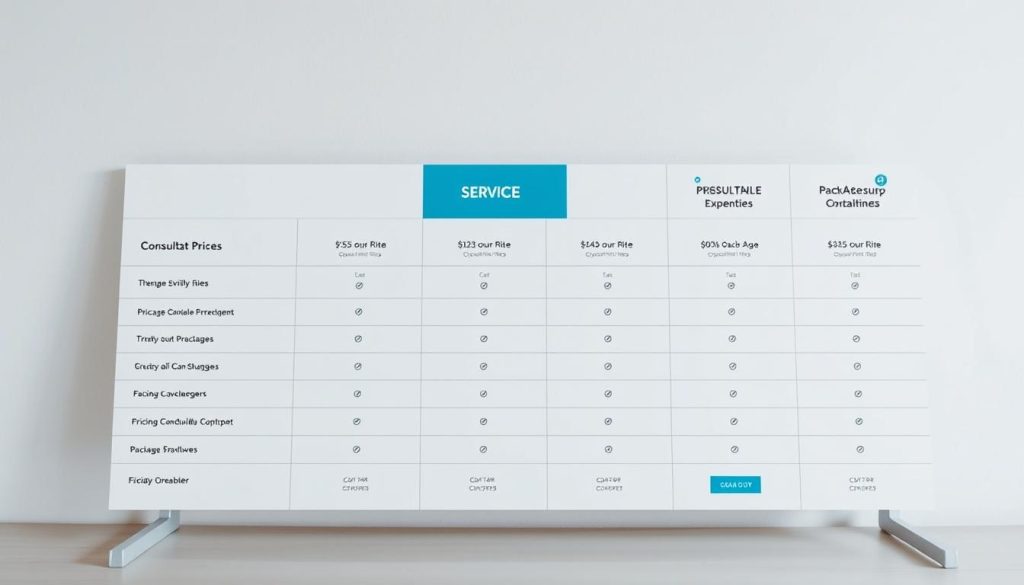In today’s fast-moving business world, companies need smart partners to help them stay ahead. A freelance supply chain consultant brings specialized knowledge to improve how goods move from creation to customer.
Global trade, online shopping growth, and eco-friendly trends make supply chains more complex. This creates big demand for experts who can tackle these challenges.
These professionals offer flexible help without long-term contracts. They focus on making operations smoother, cutting costs, and boosting performance.
This guide will show how finding the right expert can transform your business. We’ll cover key areas like manufacturing, retail, and logistics.
Table of Contents
Key Takeaways
- Freelance consultants provide flexible, specialized expertise for modern supply chain challenges.
- Global logistics complexity and e-commerce growth drive the need for these professionals.
- Supply chain optimization improves efficiency, reduces costs, and enhances business performance.
- Key benefiting sectors include manufacturing, retail, and logistics operations.
- These experts help implement advanced tools and methodologies for better results.
- Working with consultants offers project-based solutions without long-term commitments.
- Proper supply chain management builds business resilience in dynamic markets.
Understanding the Role of a Freelance Supply Chain Consultant
Modern businesses face dynamic challenges that require agile expertise. An independent professional in this field offers targeted support to enhance operational flow and strategic alignment.
What Does a Supply Chain Consultant Do?
These experts analyze how goods and information move within an organization. They look at physical, financial, and data flows to find areas for improvement.
Key activities include performing detailed audits and setting clear objectives. They design new workflows and track important metrics to ensure progress.
Their work often involves:
- Reviewing current processes for strengths and weaknesses
- Creating actionable recommendations based on findings
- Implementing solutions that boost efficiency and cut costs
Key Responsibilities in Daily Operations
Day-to-day tasks focus on coordination and project management. These professionals work with both internal teams and external partners.
They prioritize tasks using tools like Jira and manage project timelines. Testing and quality checks ensure that new systems work properly.
Communication is vital. Regular updates keep everyone informed about progress, risks, and next steps. This maintains alignment with business goals.
| Responsibility Area | Key Activities | Common Tools Used |
|---|---|---|
| Process Analysis | Auditing flows, identifying bottlenecks | Analytics platforms, ERP systems |
| Project Management | Planning sprints, managing backlogs | Jira, SAP, project management software |
| Coordination | Aligning teams, supplier management | Communication tools, TMS |
| Risk Management | Anticipating issues, creating contingencies | Business intelligence platforms |
| Performance Tracking | Monitoring KPIs, reporting results | Dashboard software, WMS |
In manufacturing, they might streamline production lines. In retail, they could optimize distribution networks. Each project aims for better performance.
These experts use technology like ERP systems and simulation software. This helps model changes before implementation, reducing risk.
Working independently allows them to bring specialized knowledge to each mission. They adapt quickly to unique organizational needs without long-term commitments.
Ultimately, they drive continuous improvement and build resilience into business operations. This makes them valuable partners in today’s market.
Why Businesses Need Freelance Supply Chain Expertise
Global commerce moves at lightning speed today. An incredible 84% of companies report facing major logistique hurdles according to recent surveys. This shows how critical expert help has become.
Customers now expect rapid delivery and perfect quality. They want to track orders from warehouse to doorstep. Meeting these demands requires specialized knowledge.
Addressing Complex Logistics Challenges
Modern trade networks face constant pressure. Inventory pile-ups and shipping delays can halt operations. These issues hurt performance and customer satisfaction.
Independent experts bring fresh perspectives. They analyze processus flows to find root causes. Their solutions often combine technology with practical changes.
Common problems they solve include:
- Warehouse layout inefficiencies causing slow approvisionnement
- Transportation routes that increase costs and delays
- Inventory management systems needing optimisation
They use advanced tools like TMS and WMS platforms. These systems provide real-time visibility across operations. This helps prevent small issues from becoming big problems.
Navigating Global Supply Chain Demands
International trade adds layers of complexity. Different countries have unique rules and customs procedures. Managing this requires careful coordination.
Experts help businesses comply with regional regulations. They establish relationships with overseas partners. This ensures smooth movement of produits across borders.
Digital transformation plays a key role here. Technologies like AI predict demand patterns across markets. Machine learning optimizes routing based on real-time conditions.
Sustainability has become equally important. Modern entreprises must consider environmental impact. Experts integrate ESG principles into logistics planning.
This approach meets ethical standards while often reducing costs. Efficient routes typically use less fuel. Better inventory planning reduces waste throughout the system.
Having specialized help available when needed provides real security. It allows businesses to tackle urgent issues immediately. This flexibility creates stronger, more resilient operations.
Core Competencies of Top Supply Chain Consultants
Outstanding professionals in this field combine deep technical knowledge with strong people skills. They bring both data-driven insights and collaborative approaches to every project.

This unique blend allows them to tackle complex challenges effectively. They translate analysis into actionable strategies that deliver measurable results.
Essential Technical Skills and Knowledge
Modern experts master various digital tools that drive operational excellence. They use specialized software to analyze, model, and improve business processes.
Key technical capabilities include:
- Proficiency with ERP platforms like SAP for integrated management
- Data analytics using Power BI or Qlik Sense for performance insights
- Simulation software such as AnyLogic for modeling product flows
- Process mapping tools like Lucidchart for visualizing workflows
- Programming languages including Python for statistical analysis
These skills help professionals understand complex information systems. They extract meaningful data to identify optimization opportunities.
For example, Python scripts can predict demand patterns across markets. Simulation models test different scenarios before implementation.
Niche expertise in areas like lean manufacturing adds significant value. Knowledge of sustainable logistics practices also sets top performers apart.
Continuous learning keeps these experts current with industry trends. They regularly update their technical toolkit to maintain effectiveness.
Soft Skills for Effective Client Relations
Technical expertise alone isn’t enough for success. The ability to work effectively with people determines real impact.
Strong communication skills build trust with stakeholders. Active listening helps understand unique organizational needs.
These professionals excel at explaining complex concepts simply. They present findings clearly to support informed decision-making.
Collaboration abilities enable smooth teamwork across departments. They coordinate effectively with various groups to implement changes.
Influence and persuasion skills help gain buy-in for transformation initiatives. They align diverse teams around common objectives.
Adaptability allows them to work within different corporate cultures. They adjust their approach based on specific client contexts.
Project management methodologies like agile ensure precise execution. They break large missions into manageable phases with clear deliverables.
| Competency Category | Specific Skills | Business Impact |
|---|---|---|
| Technical Expertise | ERP systems, data analytics, simulation software | Improved process efficiency and cost reduction |
| Analytical Abilities | Statistical analysis, diagnostic assessment, pattern recognition | Better decision-making and risk management |
| Communication Skills | Client reporting, team coordination, stakeholder updates | Stronger alignment and smoother implementation |
| Project Leadership | Agile methodologies, timeline management, team federation | Faster results and higher return on investment |
| Cultural Adaptation | Active listening, corporate culture navigation, flexibility | Better client relationships and customized solutions |
The perfect balance between hard and soft skills drives exceptional performance. Technical knowledge identifies opportunities while interpersonal abilities ensure successful implementation.
This combination delivers transformation that creates lasting value for organizations. It turns analysis into action that improves overall business performance.
The Strategic Value of Supply Chain Optimization
Smart businesses recognize that operational excellence drives market leadership. Strategic optimization transforms how goods and information move through organizations.
This approach creates measurable value across all business functions. It turns complex challenges into competitive advantages.
Improving Efficiency and Reducing Costs
Lean principles eliminate waste throughout operational processus. They focus on value-added activities while cutting unnecessary steps.
Just-in-time inventory systems reduce storage expenses significantly. Companies maintain smaller stock levels without risking shortages.
Transportation route optimization saves fuel and time. Better planning means fewer empty miles and faster deliveries.
Digital tools provide real-time visibility into operations. They help identify bottlenecks before they become costly problems.
One manufacturer reduced production delays by 40% through better planification. Their inventory costs dropped by 25% in just six mois.
« Optimization isn’t about working harder—it’s about working smarter with the resources you already have. »
Enhancing Competitive Advantage
Faster time-to-market gives businesses crucial market advantages. They can respond to trends before competitors even notice.
Customers receive higher quality produits with better traceability. They know exactly where their items come from and when they’ll arrive.
Reliable operations build strong brand reputation. Companies become known for consistency and dependability.
Adaptability to market changes becomes much easier. Optimized systems can pivot quickly when customer needs evolve.
Sustainability improvements align with modern consumer values. Efficient logistics naturally reduce environmental impact.
These advantages combine to create stronger market positions. Businesses can offer better prices while maintaining healthy margins.
Expert guidance brings specialized knowledge to internal teams. They implement changes that deliver lasting improvements.
Strategic optimization becomes a foundation for growth. It supports expansion into new markets and product lines.
The right approach builds resilience against unexpected disruptions. Companies maintain operations when others struggle.
This makes optimization a strategic imperative rather than just a tactical improvement. It positions organizations for long-term success.
How to Identify Your Supply Chain Needs
Every successful improvement journey begins with understanding where you stand today. Knowing your exact requirements helps focus efforts where they matter most.
Assessing Current Operations and Gaps
Start by examining how materials and information move through your organisation. Look at physical goods, data flux, and financial movements.
Conduct thorough audits of your processus. Map each step from supplier to customer. This reveals hidden inefficiencies.
Use SWOT analysis to identify:
- Internal strengths in your current logistique
- Weaknesses causing delays or extra costs
- Opportunities for optimisation
- External threats to your approvisionnement
Engage teams from different departments. Include achat, warehouse, and transportation staff. Their insights provide complete picture.
Data analytics platforms measure current performance. Compare results against industry benchmarks. This shows where improvements matter most.
Common gaps often include inventory mismanagement. Supplier reliability issues also appear frequently. These problems hurt production schedules.
External experts bring fresh perspective. They often spot issues internal teams miss. This objectivity drives better results.
Defining Project Objectives and Scope
Clear goals turn assessment findings into action plans. They align improvement work with business strategy.
Set specific objectives for your projet. Focus on measurable outcomes like cost reduction. Time-based targets keep efforts on track.
Define the scope carefully. Determine which domaines to include in the mission. Establish clear boundaries for the work.
Create realistic timelines for completion. Most improvement projets take several mois. Budget appropriately for resources needed.
Key performance indicators measure success. Track metrics like order fulfillment rates. Cost per unit shipped shows financial impact.
Document all findings in a clear roadmap. This ensures everyone understands the plan. It shows how each step leads to improvement.
Regular reviews keep efforts aligned with changing needs. Market conditions evolve constantly. Your approach should adapt accordingly.
Thorough needs identification creates strong foundation. It leads to measurable improvements across operations. This builds stronger, more resilient businesses.
Finding the Right Freelance Supply Chain Consultant
Choosing the perfect expert for your business needs requires careful thought. The right match can transform your operations and drive significant improvements.

Focus on professionals who understand your specific challenges. Look for those with proven success in similar situations.
Where to Search for Qualified Professionals
Several platforms connect businesses with skilled experts. Online marketplaces offer broad access to talent worldwide.
Specialized recruitment agencies provide pre-vetted candidates. They save time by matching your requirements with suitable profiles.
LinkedIn remains a powerful tool for finding experienced professionals. Its search filters help narrow down options by skill and industry.
Industry events and conferences offer networking opportunities. Personal connections often lead to discovering hidden talent.
Referrals from professional networks provide trusted recommendations. Colleagues in your sector may know excellent candidates.
Evaluating Credentials and Experience
Review past projects to assess practical experience. Look for measurable results and successful outcomes.
Check certifications that validate technical knowledge. These credentials demonstrate commitment to professional standards.
Assess specific skills like ERP system mastery. Proficiency in tools like SAP indicates strong technical capability.
Verify sector experience relevant to your industry. Someone familiar with your field understands unique challenges.
Consider cultural fit and communication style. The professional must collaborate effectively with your teams.
Daily rates in France reflect experience levels. Junior experts charge €300-400, while seniors range €500-800.
High-demand areas like Paris may command €1000+. Consider value rather than cost alone when making decisions.
Request case studies showing problem-solving abilities. Concrete examples demonstrate practical application of skills.
Conduct interviews to evaluate thinking processes. Ask how they would approach your specific situation.
Check references to confirm reliability and results. Previous clients provide insights into actual performance.
Niche expertise matters for specialized needs. Distribution networks require different skills than production lines.
The independent model offers flexibility for specific projects. Businesses can engage experts without long-term commitments.
Clear contracts define deliverables and timelines. Proper scope definition prevents misunderstandings during projects.
Initial consultations help assess alignment with goals. Use these meetings to evaluate problem-solving approaches.
Prioritize proven track records over lowest cost. The right choice delivers return through expert solutions.
Industry Sectors That Benefit Most from Supply Chain Consultants
Across various economic sectors, organizations seek to optimize their material and information flows. Different industries face unique challenges that require specialized expertise and tailored approaches.
Professional guidance helps businesses navigate complex operational landscapes. These experts bring valuable insights that drive measurable improvements.
Manufacturing and Production Industries
Manufacturing secteurs gain significant advantages from expert intervention. Automotive and aerospace companies benefit from streamlined production lines.
Pharmaceutical manufacturers require precise temperature controls and compliance. Food fabrication needs careful handling of perishable produits.
Key benefits include:
- Reduced waste through lean manufacturing principles
- Improved supplier network management
- Enhanced quality control throughout processus
- Better inventory planification for just-in-time operations
These improvements lead to higher performance and lower costs. Companies achieve better resource utilization across their operations.
Retail and Distribution Networks
Retail businesses face intense pressure from e-commerce growth. Distribution networks must adapt to changing consumer besoins.
Experts help optimize last-mile delivery for faster service. They implement systems that manage inventory across multiple channels.
Successful transformation in retail includes:
- Omnichannel strategy implementation
- Real-time inventory tracking systems
- Route optimization for delivery flux
- Customer experience enhancements
These changes help retailers compete effectively in digital markets. They ensure products reach customers quickly and reliably.
Other sectors also benefit greatly from specialized expertise. Healthcare organizations manage critical medical approvisionnement chains.
Transport and logistics companies optimize freight operations using advanced technologies. Energy entreprises handle complex raw material flux.
« The right expertise can transform sector-specific challenges into competitive advantages. »
Luxury goods manufacturers focus on traceability and anti-counterfeiting measures. Food producers address safety and perishability concerns.
Public sector organizations improve procurement and distribution efficiency. Government agencies achieve better service delivery through optimized processus.
Cross-industry knowledge sharing fosters innovation. Best practices from one domaine often solve problems in another.
Digital transformation plays a crucial role across all secteurs. Industry 4.0 technologies revolutionize manufacturing operations.
E-commerce platforms transform retail distribution models. These advancements drive significant optimisation throughout entire organisations.
Virtually any entreprise with operational flux can benefit from expert guidance. Complex sectors particularly value the return on investment.
The right expertise addresses specific sector challenges effectively. It creates resilient operations that withstand market pressures.
Key Tools and Technologies in Modern Supply Chain Management
Today’s complex business environment demands powerful digital solutions. Advanced technologies provide the foundation for efficient operations and smart decision-making across organizations.
These systems transform how companies manage their daily activities. They create seamless connections between different parts of the business.
Specialized professionals help select and implement the right tools. Their expertise ensures technology matches specific business needs.
ERP Systems and SAP Solutions
Enterprise Resource Planning platforms form the backbone of modern operations. Systems like SAP integrate various business functions into one cohesive unit.
These solutions centralize data from procurement, production, and distribution. They enable real-time visibility across the entire organization.
Key benefits include:
- Seamless coordination between departments and teams
- Improved data accuracy through centralized information management
- Better decision-making with access to real-time operational data
- Enhanced compliance through standardized processes
In manufacturing, SAP helps manage inventory levels and production schedules. Retail businesses use it to track products across multiple locations.
These systems provide a complete view of business operations. They help identify opportunities for improvement and growth.
Analytics and Business Intelligence Platforms
Data analysis tools transform raw information into actionable insights. Platforms like Power BI and Qlik Sense help businesses understand their performance.
These systems monitor key performance indicators and identify trends. They support continuous improvement efforts throughout the organization.
Business intelligence tools help with:
- Tracking operational metrics and performance indicators
- Identifying patterns and trends in business data
- Creating visual reports for easy understanding
- Supporting data-driven decision-making processes
Retail companies use these platforms to forecast demand and plan inventory. Manufacturing organizations analyze production efficiency and quality metrics.
The insights gained help businesses optimize their operations. They support strategic planning and resource allocation.
Simulation software allows testing changes without disrupting actual operations. Tools like AnyLogic model different scenarios and predict outcomes.
Process mapping applications visualize workflows to identify bottlenecks. They support continuous improvement initiatives across the business.
Project management tools ensure timely delivery of improvement projects. They help plan activities and track progress against objectives.
Transportation and warehouse management systems integrate with ERP platforms. This provides a holistic view of logistics operations and performance.
Cloud-based technologies offer scalability and accessibility for businesses of all sizes. They support remote work and collaboration across locations.
These tools drive digital transformation within organizations. They implement automation and predictive analytics for smarter operations.
Mastering these technologies is essential for modern business success. The right tools create competitive advantages and support growth.
Specialized professionals bring expertise in selecting and implementing appropriate solutions. They ensure technology supports business objectives effectively.
Understanding Consultant Rates and Pricing Structures
Budgeting for expert guidance requires understanding market rates and value propositions. Knowing what to expect helps businesses make smart investment decisions.

Different factors affect how professionals set their prices. Experience, location, and specialization all play important roles.
Daily Rate Expectations in France
French businesses should prepare for varying price points based on expertise levels. Junior professionals typically charge between €300-400 per day.
Senior experts with proven track records command €500-800 daily. Top specialists in high-demand areas like Paris may reach €1000+.
These rates reflect the value these professionals bring to organizations. Their work often delivers returns that justify the investment.
Factors That Influence Pricing
Several elements determine final costs for professional services. Experience level stands as the primary consideration.
Professionals with more years in the field naturally command higher rates. Their accumulated knowledge provides greater value to clients.
Specialization areas also impact pricing significantly. Expertise in lean manufacturing or sustainability may increase daily rates.
Project complexity plays a crucial role in determining costs. More challenging missions require advanced skills and justify premium pricing.
Geographic location affects rates throughout France. Urban centers like Île-de-France show higher prices due to demand and living costs.
Industry sector variations influence what businesses can expect to pay. Pharmaceutical and aerospace sectors often command premium rates.
Technical proficiency with specific tools adds value to services. Mastery of platforms like SAP or advanced analytics increases market rates.
Pricing structures may vary between daily rates and fixed project fees. Some professionals adjust rates for long-term engagements.
Remote work arrangements sometimes affect final pricing structures. Businesses should discuss all aspects before finalizing agreements.
| Experience Level | Daily Rate Range | Key Differentiators |
|---|---|---|
| Junior Professionals | €300-400 | Basic process knowledge, limited project experience |
| Senior Experts | €500-800 | Proven track record, multiple successful missions |
| Top Specialists | €1000+ | Niche expertise, high-demand locations, special tools |
Businesses should consider additional potential costs beyond daily rates. Software licenses or travel expenses might affect overall project budgets.
The independent model offers flexibility in negotiation and engagement terms. Companies can tailor agreements to specific needs and financial constraints.
Higher rates often correlate with faster results and greater return on investment. Experienced professionals typically deliver more significant improvements.
Finding the right balance between cost and quality ensures optimal outcomes. Businesses should prioritize expertise that matches their specific challenges.
Clear communication about budget constraints helps professionals tailor their approach. This ensures both parties achieve mutually beneficial results.
Proper budgeting for expert guidance represents an investment in operational excellence. The right professional can transform business performance significantly.
Project Management in Supply Chain Consultancy
Successful transformation requires careful coordination and precise execution. Effective project management turns strategic visions into operational realities that deliver measurable results.
Professionals use structured approaches to guide complex initiatives. They balance technical expertise with leadership skills to achieve business objectives.
Planning and Executing Supply Chain Projects
Every successful mission begins with clear definition of scope and goals. The chef projet establishes what the initiative will accomplish and how success will be measured.
Roadmaps outline the entire journey from start to finish. They break large objectives into manageable phases with specific deliverables.
Agile methodologies help manage complex projets effectively. Teams work in sprints to maintain momentum and adapt to changing conditions.
Regular rituals like daily stand-ups keep everyone aligned. Backlog grooming ensures priorities reflect current business besoins.
Key planning activities include:
- Defining project scope and success criteria
- Creating detailed roadmaps with milestones
- Prioritizing tasks based on business impact
- Allocating resources appropriately
Execution focuses on turning plans into action. Teams implement changes while maintaining normal operations.
Testing ensures new systems work correctly before full deployment. Quality checks verify that deliverables meet requirements.
Documentation captures decisions and changes throughout the mission. This supports knowledge transfer and future improvements.
Managing Timelines and Deliverables
Time management ensures projects stay on track and within budget. Realistic deadlines account for complexity and potential challenges.
Milestone tracking provides visibility into progress. Regular updates keep stakeholders informed about achievements and adjustments.
Deliverable oversight ensures each phase produces tangible outcomes. Process maps, implemented solutions, and performance reports demonstrate value.
Risk management identifies potential issues before they become problems. Contingency plans prepare teams for unexpected developments.
Dependency tracking prevents bottlenecks between tasks or teams. Smooth coordination maintains momentum throughout the initiative.
Tool usage enhances management effectiveness:
| Management Area | Key Tools | Primary Benefits |
|---|---|---|
| Task Tracking | Jira, Asana | Real-time progress visibility, backlog management |
| Process Documentation | Visio, Lucidchart | Clear workflow visualization, standard procedures |
| Performance Monitoring | Power BI, Tableau | KPI tracking, data-driven decisions |
| Communication | Slack, Teams | Team coordination, stakeholder updates |
| Risk Management | Risk registers, BI tools | Issue anticipation, contingency planning |
Collaboration remains essential throughout the process. Internal and external teams must work together seamlessly.
Communication ensures alignment with client goals and expectations. Regular check-ins address concerns and adjust approaches.
Documentation maintains records of decisions and results. This supports continuity and provides reference for future initiatives.
« Great project management turns complex challenges into achievable steps that deliver real business value. »
Effective management transforms strategies into actionable results. It creates measurable improvements that enhance business performance.
This approach builds confidence in transformation initiatives. Teams see progress and understand how their work contributes to success.
The right management framework ensures projects deliver expected returns. It maximizes the impact of expert guidance on operations.
The Freelance Advantage: Flexibility and Specialization
Modern companies need adaptable solutions to stay competitive in dynamic markets. Independent professionals offer unique advantages that traditional employment models cannot match.
Benefits of Hiring Independent Consultants
These experts bring remarkable adaptability to their engagements. They can work onsite, remotely, or in hybrid arrangements based on project requirements.
This flexibility allows businesses to scale their operations efficiently. Companies can access top talent during peak seasons or special initiatives.
Cost efficiency represents another significant advantage. Organizations avoid long-term salary commitments and benefit costs.
Fresh perspectives often lead to breakthrough improvements. External professionals introduce ideas from diverse industries and experiences.
« The right independent expert can transform operations while maintaining budget flexibility. »
Small and medium enterprises particularly benefit from this model. They gain access to high-level expertise without full-time employment costs.
Clear contracts define project scope and deliverables precisely. This ensures both parties understand expectations and timelines.
Access to Niche Expertise
Specialized knowledge sets these professionals apart. Many develop deep expertise in specific areas through varied project experience.
Industry-specific knowledge proves invaluable for complex challenges. Professionals understand unique sector requirements and best practices.
Technical specialization includes advanced software platforms and methodologies. This expertise drives digital transformation initiatives effectively.
Sustainability and ESG compliance have become crucial focus areas. Experts help companies implement environmentally responsible practices.
Network building occurs naturally through diverse project work. Professionals connect businesses with valuable industry contacts and resources.
Quality work often results from this professional model. Independent experts maintain strong motivation through varied challenging projects.
The global talent pool continues expanding through digital platforms. Businesses can now access specialized skills from anywhere in the world.
This approach represents a strategic choice for modern organizations. It combines expertise with operational flexibility for optimal results.
Building Successful Client-Consultant Relationships
Great partnerships form the foundation of effective business transformations. When companies and professionals work together seamlessly, they achieve remarkable results that drive lasting improvement.

Strong connections between organizations and their advisors create environments where innovation thrives. These relationships combine external expertise with internal knowledge for optimal outcomes.
Communication and Collaboration Best Practices
Clear dialogue keeps everyone moving in the same direction. Regular updates ensure all parties understand progress, challenges, and next steps.
Digital tools like Slack and Teams enable real-time coordination. They create spaces for quick questions and timely responses that keep projects on track.
Establish feedback channels that work both ways. Clients should feel comfortable sharing concerns while professionals need to provide honest assessments.
Weekly check-ins review accomplishments and adjust plans as needed. These meetings maintain momentum and address issues before they grow.
Transparency builds trust throughout the engagement. Sharing documents, risks, and performance data openly creates informed decision-making.
According to industry research, regular communication can reduce operational risks by. Companies with formal channels experience fewer disputes and smoother implementations.
Ensuring Alignment with Business Goals
Understanding the client’s vision is crucial for meaningful results. Professionals must grasp not just what needs fixing but why it matters to the organization.
Key performance indicators should reflect strategic objectives. Tracking the right metrics ensures improvements support broader business goals.
Involving stakeholders from various departments creates stronger buy-in. Logistics, purchasing, and IT teams all contribute valuable perspectives.
Cultural fit matters as much as technical capability. Professionals who understand the company’s values deliver more appropriate solutions.
Flexibility allows adjustments when priorities shift. Market conditions change, and successful partnerships adapt accordingly.
Clear expectations prevent misunderstandings from the start. Defining roles, deliverables, and success metrics creates accountability for everyone involved.
Studies show that aligning goals with partners can reduce logistics costs by 18%. This approach turns temporary engagements into strategic advantages that deliver lasting value.
Current Trends Shaping Supply Chain Management
Business operations today evolve at unprecedented speed, requiring constant adaptation to new technologies and market expectations. Companies must navigate both digital innovation and sustainability demands to remain competitive in global markets.
These developments create exciting opportunities for optimisation across entire organisations. Understanding these trends helps businesses make informed decisions about their operational flux.
Digital Transformation and Industry 4.0
Artificial intelligence now predicts demand patterns with remarkable accuracy. Machine learning algorithms analyze historical data to forecast future besoins.
Internet of Things devices provide real-time tracking throughout the logistique network. Sensors monitor temperature, location, and condition of produits during transit.
Blockchain technology enhances transparency and security across the entire supply chain. It creates immutable records of transactions and movements.
Industry 4.0 brings automation to warehouses and production facilities. Smart factories use robotics and connected systems for efficient fabrication.
Digital twins create virtual models of physical operations. These simulations test changes before implementation, reducing risques.
Cloud-based platforms enable seamless coordination between partners. They provide shared visibility across different organisations.
Sustainability and ESG Considerations
Environmental, Social, and Governance criteria now influence management decisions significantly. Companies prioritize eco-friendly suppliers and practices.
Route optimization reduces carbon emissions through smarter planification. Efficient transportation means fewer vehicles and less fuel consumption.
Circular economy principles guide product lifecycle gestion. PLM systems help design products for reuse and recycling.
Ethical sourcing ensures fair labor practices throughout the approvisionnement network. Regular audits verify compliance with standards.
Consumer pressure drives sustainability initiatives across various secteurs. Modern clients expect transparency about environmental impact.
ESG integration becomes a competitive advantage in many domaines. Companies demonstrating responsibility attract loyal customers.
Specialized professionals help businesses navigate these complex trends. They provide expertise in selecting and implementing appropriate technologies.
These experts understand both technical requirements and business besoins. They ensure new systems align with organizational goals.
Implementation typically occurs through focused projets with clear objectives. Each mission addresses specific improvement opportunities.
Cybersecurity becomes crucial with increased digitalization. Professionals help establish robust protocols to protect sensitive data.
Global regulations influence trend adoption across different secteurs. International standards require consistent approaches.
« The most successful companies don’t just follow trends—they anticipate them and build adaptable systems that can evolve with market changes. »
Staying ahead of these developments future-proofs business operations. Agile approaches allow quick adaptation to new technologies and expectations.
Independent experts offer the flexibility needed for rapid implementation. They bring specialized knowledge without long-term commitments.
This approach ensures businesses remain competitive in dynamic markets. It creates resilient operations ready for whatever comes next.
Overcoming Common Supply Chain Challenges
Businesses today navigate a landscape filled with unexpected obstacles and shifting conditions. The ability to handle disruptions separates successful organizations from those that struggle. Independent experts provide crucial support in building resilient operations.
Risk Management and Contingency Planning
Effective risk gestion starts with thorough assessment of potential threats. Professionals analyze every aspect of your organisation to identify weak points.
They examine supplier reliability and inventory practices. Transportation routes and warehouse operations receive careful scrutiny.
Common vulnerabilities include:
- Single-source supplier dependencies creating risques
- Inadequate safety stock levels for critical produits
- Limited transportation options during disruptions
- Insufficient data tracking throughout the flux
After identifying weaknesses, experts develop comprehensive contingency plans. These strategies prepare businesses for various scenarios.
Backup supplier networks provide alternatives when primary partners face issues. Safety stock calculations ensure adequate inventory during crises.
Communication protocols keep all stakeholders informed during emergencies. Clear channels prevent confusion and enable quick decisions.
Technology plays a vital role in modern risk management. Analytics platforms monitor potential threat indicators.
These systems track weather patterns, political developments, and market trends. Early warnings allow proactive responses.
Adapting to Market Disruptions
Recent global events have shown how quickly conditions can change. The COVID-19 pandemic demonstrated the value of flexible operations.
During that crisis, many companies shifted to alternative suppliers quickly. Digital tools enabled remote coordination when offices closed.
Building adaptability into your processus creates long-term advantages. Multi-modal transportation options provide routing flexibility.
Localized production reduces dependency on distant facilities. Regional distribution centers speed up delivery times.
Training programs prepare teams for unexpected situations. Employees learn crisis protocols and decision-making frameworks.
This cultural shift towards agility ensures quick responses. Organizations can pivot operations when markets change suddenly.
Technology solutions enhance adaptation capabilities. Transportation management systems optimize routes based on current conditions.
Warehouse management platforms enable dynamic inventory gestion. These tools adjust stock levels automatically.
Digital collaboration tools maintain communication during disruptions. Teams coordinate effectively regardless of location.
| Challenge Type | Common Scenarios | Preventive Measures |
|---|---|---|
| Supplier Issues | Bankruptcies, quality problems, delivery failures | Multiple sourcing, regular audits, performance tracking |
| Transportation Disruptions | Port closures, fuel shortages, weather events | Route diversification, carrier alternatives, real-time tracking |
| Demand Fluctuations | Sudden spikes, seasonal changes, market shifts | Demand forecasting, flexible inventory, production agility |
| Regulatory Changes | Customs procedures, safety standards, trade restrictions | Compliance monitoring, legal consultation, documentation systems |
| Technology Failures | System crashes, cyber attacks, data loss | Backup systems, security protocols, recovery plans |
Long-term resilience requires continuous improvement. Regular reviews identify new vulnerabilities as businesses evolve.
Stress testing simulates various disruption scenarios. These exercises validate contingency plans and reveal gaps.
Performance metrics track resilience improvements over time. Key indicators measure recovery speed and impact minimization.
External expertise brings valuable perspective to these efforts. Professionals share best practices from various secteurs.
Their experience with different domaines provides innovative solutions. They help implement changes that build stronger operations.
The right approach combines planning, technology, and expertise. This creates organizations ready for whatever challenges arise.
Measuring the Impact of Supply Chain Consultancy
Proving the value of expert guidance transforms abstract improvements into concrete business results. Effective measurement demonstrates how operational changes translate into financial gains and competitive advantages.
This evaluation process involves tracking specific indicators and calculating returns. It shows the real difference professional support makes to your organisation.
Key Performance Indicators and Metrics
Performance tracking starts with selecting the right measurements. These indicators should reflect your business goals and improvement areas.
Common metrics include cost per unit shipped and order fulfillment rates. Inventory accuracy and cycle time reduction also matter greatly.
Important indicators to monitor:
- Cost reduction percentages across operations
- On-time delivery performance metrics
- Inventory turnover rates and stock accuracy
- Customer satisfaction scores and feedback
- Carbon footprint reduction for sustainability
Business intelligence platforms help track these measurements. They provide real-time visibility into performance across your entreprise.
Baseline establishment happens before any projet begins. This creates reference points for comparing before and after results.
Regular reporting keeps everyone informed about progress. These updates highlight achievements and identify areas needing attention.
Data analysis reveals patterns and opportunities. It supports continuous optimisation throughout your operations.
Evaluating Return on Investment
Financial assessment compares project costs against achieved benefits. This calculation justifies the investment in professional support.
ROI evaluation considers both direct savings and revenue increases. Reduced logistics expenses and improved service levels both contribute.
Measurement approaches include:
| Evaluation Method | Measurement Focus | Typical Outcomes |
|---|---|---|
| Cost-Benefit Analysis | Direct financial savings from improvements | Reduced operational expenses, lower inventory costs |
| Performance Comparison | Before and after operational metrics | Faster cycle times, higher accuracy rates |
| Revenue Impact | Sales increases from better service | Higher customer retention, new business gains |
| Strategic Value | Long-term competitive advantages | Market position strengthening, brand enhancement |
Qualitative benefits also contribute to overall value. Team morale improvements and innovation culture matter significantly.
Brand reputation enhancement creates lasting advantages. Customer trust and loyalty translate into sustained business growth.
Transparent reporting builds confidence in the mission. Professionals should clearly link their work to business outcomes.
Stakeholder reviews ensure alignment with expectations. Regular meetings discuss metrics and adjust strategies as needed.
Continuous monitoring maintains improvements over time. Performance tracking shouldn’t stop when the projet ends.
« What gets measured gets managed—and what gets managed gets improved. »
This approach turns temporary engagements into lasting transformations. It creates organizations that continuously evolve and improve.
Proper measurement justifies future investments in operational excellence. It demonstrates how expert guidance delivers real returns.
Conclusion
Navigating today’s business landscape requires sharp, adaptable expertise. Independent professionals bring specialized knowledge to optimize your operational flow and drive meaningful improvements.
They help address complex logistics challenges and implement smart solutions. This approach enhances efficiency, cuts costs, and builds resilience.
Businesses gain flexibility without long-term commitments. You can tackle urgent issues and adapt to market changes quickly.
From manufacturing to retail, various sectors benefit. These experts use advanced tools and methodologies for better results.
Assess your current gaps and consider expert support. The right guidance transforms challenges into competitive advantages.
Start exploring platforms to find your ideal match. With the right partner, operational excellence is within reach.
FAQ
What exactly does a supply chain consultant do?
They analyze, design, and improve the flow of goods, information, and finances from raw materials to the end customer. Their work focuses on boosting efficiency, cutting costs, and building more resilient operations.
Why should my company consider hiring a freelance expert instead of a full-time employee?
Freelancers offer specialized skills for specific projects without the long-term commitment. You get top-tier expertise exactly when you need it, which is often more flexible and cost-effective.
Which industries benefit the most from this type of expertise?
While many sectors see gains, manufacturing, retail, distribution, and production industries often experience the most significant impact due to their complex logistics and inventory needs.
What are the key things to look for when hiring a consultant?
A> Focus on their proven experience in your sector, technical knowledge (like ERP or SAP systems), and strong soft skills. Clear communication and a track record of delivering results are crucial.
How do you measure the success of a supply chain project?
Success is typically measured through key performance indicators (KPIs) like reduced lead times, lower inventory costs, improved on-time delivery rates, and the overall return on investment for the project.
What are the current big trends affecting supply chains today?
Digital transformation, including AI and IoT, is huge. There’s also a major push towards sustainability, ethical sourcing, and building agile networks that can handle unexpected market disruptions.
How are freelance consultants typically priced?
Most work on a daily or project rate. The final cost depends on their experience, the project’s complexity, its duration, and the specific challenges your business faces.





